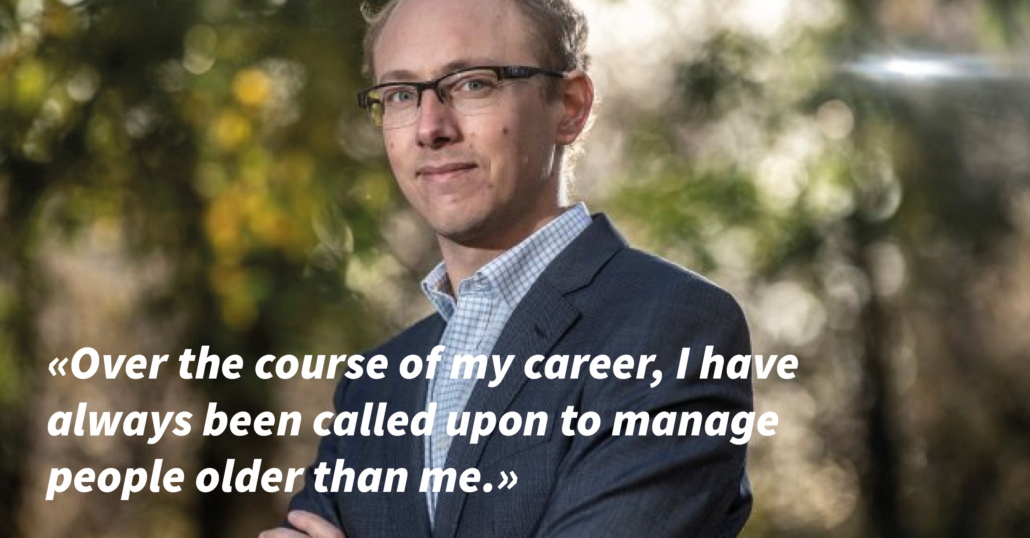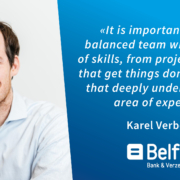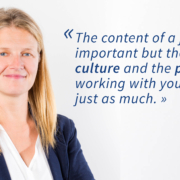Interview: Mathieu Lambert | Deloitte Consulting
It took only a few years for Mathieu Lambert to forge a name for himself in the insurance industry at the international level. After 10 years working at AXA, mainly in Belgium, Mathieu just gave a new impetus to his career by joining Deloitte Consulting as Director. Read below the interview with an IT engineer and former gamer “Counter Strike” enthusiast, with an outstanding journey as an actuary.
Hello Mathieu, would you tell us more about your first experience in the actuarial sector?
My journey is quite atypical. I started with a bachelor’s degree in Computer Science and then moved on to Actuarial science. Once I graduated, I joined Reacfin, a Belgian actuarial consulting firm. I was able to start my career as a Consultant in charge of very practical missions such as model development and reporting. This type of mission allows you to acquire the right reflexes, especially when you just graduated from university without any professional experience. After 3 years in consulting, AXA quickly offered me to take the lead of the non-life risk management team. At this young age, I couldn’t refuse such an opportunity. We were in the middle of the “golden age of risk management”, a period marked by the implementation of the Solvency II regulation.
Throughout my career, I always wanted to get additional field experience that would allow me to better understand how an actuary could have a positive impact regarding insurance brokers and clients. Thus, AXA Group proposed me to go on a mission abroad. I started working at AXA Direct UK in London where I participated in the development of their dynamic pricing project. The UK market is very aggressive and price sensitive. The British people buy their insurance contract just as they buy their plane ticket, on specialized platforms called “aggregator”. Then, I headed to Turkey where I had to set up a non-existent pricing team and support the reserving teams.
In 2016, I returned to Belgium and started leading the pricing teams at AXA Belgium for P&C Retail activities. Rapidly, I also had to manage the Data Scientists department which was quite decentralized. Still with the willpower to better understand how the industry works and the reality of the teams , in addition to all my responsibilities, I accepted to take the responsibility for all the legal protection part in order to collaborate with the operational, claims, product and innovation teams.
Compared to the classic career path of an actuary, you have evolved very quickly and became a manager at a very young age (30). What is the secret of your success?
You are the master of your own career and you reap the rewards of what you sow. So for me it’s a question of investment. If you invest in a company with the objective of growing, you generally manage to evolve in a positive way. I would advise you not to hesitate to reinvent yourself, to question yourself, to embrace failure in order to bounce back better and to stay hungry for learning.. Moreover, it is important to see your evolution in a collective way. We never grow alone but with the help of our team. Mutual respect is therefore essential.
Have you faced particular challenges moving on quickly to management functions?
Throughout my career, I have always had to manage people older than me. It is important to gain their trust through credibility. I think I have achieved this by directly identifying the missions where the teams needed help in order to support them by being available. Indeed, I do not hesitate to take on a task myself when the team is overwhelmed. I have always favored this team spirit with my collaborators by acting as a coach and not as a leader. Victories are then shared together and not individually.
Would you advise actuaries to specialize themselves on a specific expertise or to broaden their skillset to develop their career?
Both have tremendous value for a company. It all depends on their professional perspectives. If you have a career as a specialist, I would advise you to hyper-specialize in order to be recognized as a specialist in your field and among your peers. If, on the other hand, you are a generalist like me, then you have to make sure you understand the multiple facets of an insurance company to be able to bring maximum value in the strategic choices.
AXA Group is a company that has invested heavily in data these past few years, what have you learned from your position as Chief Data Analytics?
Today, an insurance company can no longer exist without data. This will be even more true in the future. Investments in data are becoming increasingly massive. For me, it is critical and central for the strategy of an insurance company to get to know its customers very well and its market by collecting data. One of the challenges will be to manage, use and above all exploit its data in order to stand out from its competitors.
Is there an experience that has marked you the most during your career?
My experiences at the international level have been the most memorable. You learn from other cultures by discovering other market contexts. Colleagues don’t adapt to you. You are the one who must adapt very quickly to respond conscientiously and coherently to the problems within the teams while respecting the local values and culture.
Any anecdote to share with us?
Despite the fact that I’m a computer scientist, actuary and a bit of a geek on the side, I’ve always been passionate about everything related to cultural transformation programs. A few years ago, when AXA launched this program, I was invited to be a coach. This experience marked the first step of my interest in leadership. Yesterday, we were able to work in a hierarchical way. Today, it is no longer the case. The way to motivate employees varies completely across generations.
Which lesson have you learned during your career?
Knowing how to benefit from one’s experiences, whether positive or negative, in order to keep on growing.
If you could change one thing in your job, what would it be?
I would say the international dimension. I really do miss travelling.
Any idea of what the future holds for actuaries?
The recent European flooding episode sets the tone perfectly. For me, an actuary is essential to the business of an insurance company on several levels. Being able to evaluate risks is an increasingly critical challenge that faces rapidly changing risks with random frequencies. The actuaries of tomorrow will also have to master all the data at their disposal to reveal the realities of the market.
Any future projects?
I recently decided to move one step further in my career by leaving AXA to go back to the consulting world with Deloitte, with the objective to focusing on major transformation projects. My ambition is to have an impact on the whole value chain of the insurance industry.
Congratulations on this new challenge! I suggest to end this interview with our traditional question, the one we always ask. Whether on a personal or professional level: What would you like daring to do that you haven’t done yet?
Travelling for 2months with my wife and my kids around the world. (smile)
Interview by Adrien Binon, December 2021.






